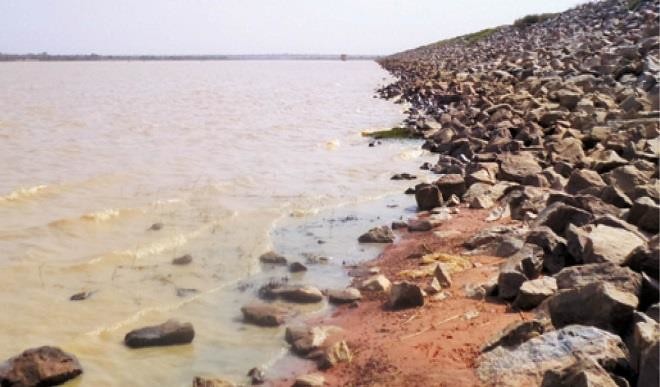Abandoned Zobe dam crippling dry season farming in Katsina
With the constant call for diversification into agriculture by the federal government, irrigation farming remains a key component for achieving self-sufficiency in food production. Most advanced countries hold unto irrigation farming, which forms an integral part of achieving sustainable food security and consequently, food sovereignty of their people. However, the ability of the government to […]


With the constant call for diversification into agriculture by the federal government, irrigation farming remains a key component for achieving self-sufficiency in food production.
Most advanced countries hold unto irrigation farming, which forms an integral part of achieving sustainable food security and consequently, food sovereignty of their people.
However, the ability of the government to provide an avenue for all year round agricultural production that will ensure availability of fresh food all year round largely depends on the functionality of its dams that will guarantee irrigation farming, often referred to as dry season farming.
In Katsina State, the three major dams – Zobe, Jibia and Sabke – were built to address the challenges of irrigation farming and water supply in the state.
However, Daily Trust’s investigations revealed that none of the irrigation projects was fully operational nor fully completed.
Located in Garhi village of Dutsin-Ma Local Government of the state, the Zobe dam, the largest and oldest to be commissioned, remains an untapped potential.
The dam was commissioned by the administration of then president Shehu Shagari in 1983, with an embankment length of 3000m, a catchment area of 2309 square kilometres (Km2), and full reservoir storage capacity of 177m.
Our investigation also revealed that Zobe dam has the potential to irrigate about 8000 hectares of arable land and also be used for regional water supply but this potential remains to be met.
The federal government in 2016, earmarked N600 million boost water supply and irrigation farming but nothing seems to have been done to fix it, most of the farmers spoken to in the area said.
Again, a sum of N461 million has been budgeted for the dam’s irrigation project for the 2017 fiscal year, while another N3.23 billion was set aside for the Zobe water supply project, but one of the leaders of the farmers in the area wondered if the amount earmarked in the budget would be able to complete the project.
A farmer in the area, Sabiu Musa, said irrigation farming ensures flow of income to farmers all year round, consequently improving their livelihood, in addition to boosting food security in the country in a bid to ensure economic liberation and prosperity.
But when Daily Trust visited the dam last Saturday, it was discovered that irrigation farmers in the area were yet to optimally benefit from the dam as they were using their water pumping machines to draw water from Karaduwa River that feeds the dam.
One of the farmers interviewed, Muhammadu Sabi’u Turare, said he had been into irrigation activities around the dam for the past 30 years but the water was never used for farming as planned.
“For 30 years we were only using Karaduwa River to water our farms and we cultivate pepper, tomato, onions, bell pepper, chilli and maize,” said Muhammadu Sabi’u.
He added that in the Makera side of the dam, farmers were mainly engaged in the cultivation of wheat especially this year in line with the agricultural policies of the federal government.
Another irrigation farmer, Sabitu Garba, said Katsina State is losing a lot in the area of food production by not fully engaging Zobe and other dams in the state for agricultural activities.
“Take a look at the volume of water and the land mass around it, opportunities are yet to be fully harnessed by making the dam not operational for years,” Garba said.
He lamented how the dam was yet to achieve its purpose of supplying 50% of portable drinking water for Katsina State.
Daily Trust, however, observed that fishermen were optimally utilizing the dam for fishing.
Many travellers stop by the dam to buy fresh, roasted, or fried fish varieties from the fishermen.
Efforts to speak with the officials of the dam, however, proved abortive.
The Minister of Water Resources, Engr. Suleima H. Adamu, had said the ministry would not embark on new project any time soon but complete all the ministry’s 117 abandoned projects, which include various dams across the country.
He said the dams would be put to use to boost dry season farming and domestic water supply.
